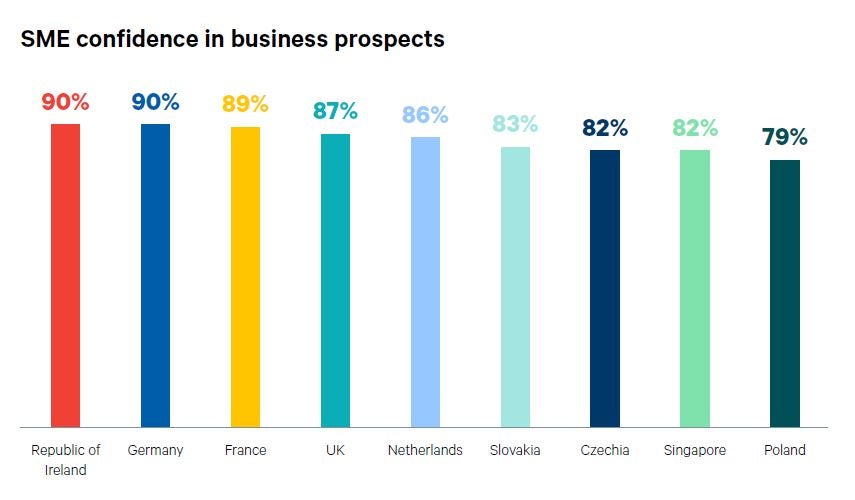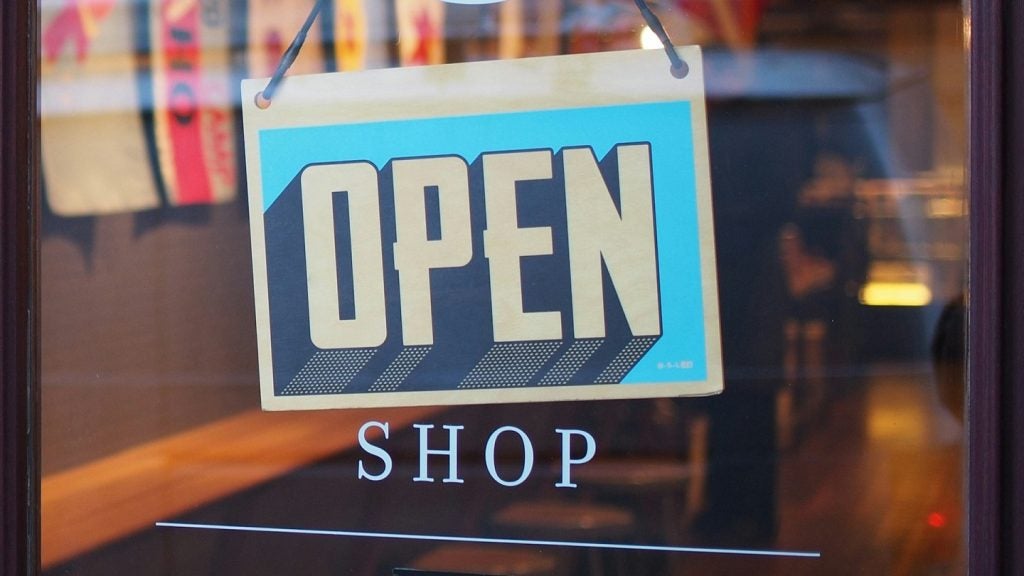
New research from global SME funder, Bibby Financial Services, reveals that 2023 is the worst economic environment for small and medium-sized enterprises (SMEs) in 15 years.
Findings from the 2023 Global Business Monitor, which surveyed SME owners and decision-makers from nine countries, show inflation (55%), energy costs (49%) and uncertainty over local economies (28%) are stifling business growth in 2023.
Indeed, the report found that 42% of SMEs across international markets believe the global economic conditions are worse now than during the pandemic, while 28% say conditions are worse than immediately after the global financial crisis of
2008.

Notwithstanding these challenges, SMEs are upbeat about their prospects. The vast majority (85%) are confident about their prospects for the remainder of 2023, and nearly two-thirds (64%) anticipate that sales will increase over the coming months.

Jonathan Andrew (pictured), Global Chief Executive Officer at Bibby Financial Services, said: “Today, business owners are battling with a cost-of-doing-business crisis on two fronts: significantly higher costs and monetary policy leveraged to tackle this primary issue. The fact that so many are positive about their own prospects in the face of these challenges is a testament to the ingenuity and determination of SME owners around the world.”
Regional variations paint a more nuanced picture. In the Republic of Ireland, SMEs are hugely optimistic with 90% saying they feel confident about their prospects. Conversely, over a fifth (21%) of Polish SMEs lack confidence in their outlook for the remainder of this year.
How well do you really know your competitors?
Access the most comprehensive Company Profiles on the market, powered by GlobalData. Save hours of research. Gain competitive edge.

Thank you!
Your download email will arrive shortly
Not ready to buy yet? Download a free sample
We are confident about the unique quality of our Company Profiles. However, we want you to make the most beneficial decision for your business, so we offer a free sample that you can download by submitting the below form
By GlobalDataGerman SMEs are the most bullish in their trading expectations, with 75% anticipating that sales will grow over the coming months. In the UK and the Netherlands, there is greater caution, with 54% predicting only a slight increase in sales.
Despite an optimistic outlook, cash flow remains an obstacle to progress for SMEs across international markets. The findings reveal that 26% of small businesses have insufficient cash flow to grow, and 10% don’t have enough to operate effectively on a day-to-day basis.
This issue is exacerbated by supply-chain pressure with more than a third (35%) of those surveyed writing off monies owed in the last 12 months and 31% reporting customers and suppliers going into administration. More than half (51%) say customers are taking longer to pay than in 2022, and a similar proportion say they are being forced to pass on higher costs to customers (50%).
Jonathan Andrew, said: “While the overriding sense of optimism is encouraging, slow growth across international economies, inflation and rising interest rates are beginning to impact supply chains. For small business owners, there is no one-size-fits-all solution to navigating the uncertain outlook ahead. What is clear across all markets is that SMEs need all the support they can get from both the private and public sectors.”
The majority (89%) of SMEs plan to invest in their businesses this year. The most popular areas earmarked for investment are sales and marketing, staff training and development, and digital technology and IT.
To support these investment intentions, SMEs are increasingly turning to third-party financing. Nearly half (46%) are more likely to use external finance than before the Covid-19 pandemic with bank and government loans, and unsecured lending the most popular options.
However, amid a backdrop of rising interest rates, many are considering alternative methods of financing to traditional sources.
“It is evident that the post-2008 era of low-interest rates has ended. This draws to a close access to cheap finance for individuals and businesses alike. It is not only the cost of finance that is at risk. With traditional financing sources re-evaluating credit appetites, there is a very real possibility we may be entering a commercial credit crunch of sorts.”
Bibby’s Global Business Monitor team spoke to more than 1,800 business owners and decision-makers in Q2 around Europe and Asia to arrive at its conclusions. See
Get the report here
UK small business growth planning hits 3-year high – Novuna







